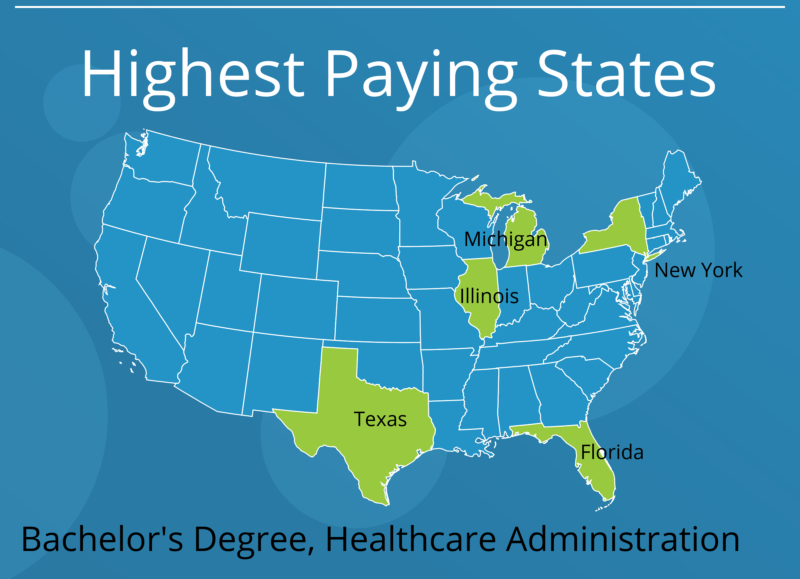
Healthcare administration degrees are essential for preparing professionals to navigate the complexities of managing health systems, hospitals, clinics, and healthcare organizations in the United States. This article explores the significance of healthcare administration degrees, the skills and knowledge gained through these programs, career opportunities available to graduates, challenges in the field, and the evolving role of healthcare administrators in improving patient care and organizational efficiency.
Significance of Healthcare Administration Degrees
Healthcare administration degrees play a critical role in equipping individuals with the leadership, managerial, and strategic skills needed to oversee healthcare operations and deliver quality patient care. These programs focus on healthcare policy, finance, ethics, information systems, organizational behavior, and healthcare law, preparing graduates to address challenges and opportunities within the healthcare industry.
The healthcare sector in the United States is highly complex, encompassing diverse stakeholders, regulatory requirements, technological advancements, and evolving patient needs. Healthcare administrators play a pivotal role in ensuring efficient healthcare delivery, optimizing resources, managing healthcare finances, and promoting patient safety and quality outcomes.
Skills and Knowledge Gained Through Healthcare Administration Programs
Students pursuing healthcare administration degrees develop a wide range of skills and knowledge essential for effective management and leadership in healthcare settings:
- Healthcare Policy and Regulation: Understanding healthcare laws, regulations, and policy frameworks that govern healthcare delivery, reimbursement, and compliance.
- Financial Management: Managing healthcare budgets, financial forecasting, revenue cycle management, and cost containment strategies to ensure financial sustainability.
- Healthcare Information Systems: Utilizing health information technology (IT) systems, electronic health records (EHR), and data analytics to enhance clinical decision-making, patient care coordination, and administrative efficiency.
- Quality Improvement: Implementing quality improvement initiatives, patient safety protocols, and evidence-based practices to enhance healthcare delivery and outcomes.
- Strategic Planning: Developing strategic plans, operational strategies, and organizational goals aligned with healthcare mission, vision, and values.
- Leadership and Communication: Leading interdisciplinary teams, fostering collaboration, and communicating effectively with healthcare professionals, patients, and stakeholders.
Career Opportunities in Healthcare Administration

Graduates with healthcare administration degrees pursue diverse career paths in various healthcare settings, including:
- Hospital Administration: Managing hospital operations, departments, and clinical services to ensure efficient patient care delivery and compliance with healthcare standards.
- Healthcare Consulting: Providing strategic advice, management consulting, and healthcare advisory services to healthcare organizations, government agencies, and healthcare technology firms.
- Healthcare Policy and Advocacy: Influencing healthcare policy development, advocating for patient rights, and addressing healthcare disparities through policy analysis and advocacy.
- Long-Term Care Administration: Overseeing long-term care facilities, nursing homes, assisted living centers, and rehabilitation centers to ensure quality care for elderly and chronically ill patients.
- Health Information Management: Managing health information systems, medical coding, health data analytics, and compliance with healthcare privacy laws (e.g., HIPAA).
- Public Health Administration: Leading public health agencies, community health centers, and non-profit organizations focused on population health, disease prevention, and health promotion initiatives.
Challenges in Healthcare Administration
The field of healthcare administration faces several challenges that impact healthcare delivery, organizational management, and patient outcomes:
- Healthcare Financing: Managing rising healthcare costs, reimbursement models, insurance billing complexities, and financial constraints affecting healthcare organizations.
- Healthcare Reform: Adapting to healthcare policy changes, regulatory reforms, and evolving healthcare delivery models (e.g., value-based care, accountable care organizations).
- Workforce Management: Addressing healthcare workforce shortages, recruiting and retaining qualified healthcare professionals, and promoting workforce diversity and inclusion.
- Technology Integration: Implementing and optimizing health information technology systems, EHR interoperability, cybersecurity measures, and data privacy safeguards.
Evolving Role of Healthcare Administrators
The role of healthcare administrators is evolving in response to healthcare trends, technological advancements, and patient-centered care models:
- Population Health Management: Promoting population health initiatives, preventive care strategies, and chronic disease management to improve health outcomes and reduce healthcare costs.
- Patient-Centered Care: Enhancing patient experience, patient engagement, and patient satisfaction through personalized care approaches and patient-centered care delivery models.
- Healthcare Innovation: Embracing healthcare innovation, digital health solutions, telemedicine, and remote patient monitoring to expand access to care and improve healthcare delivery efficiency.
- Ethical Leadership: Upholding ethical standards, patient confidentiality, healthcare ethics, and promoting a culture of patient safety and quality improvement.
Conclusion
Healthcare administration degrees are instrumental in preparing professionals to lead and manage healthcare organizations effectively in a rapidly evolving healthcare landscape. By acquiring essential skills in healthcare policy, finance, information systems, and quality improvement, graduates contribute to enhancing healthcare delivery, patient outcomes, and organizational performance.
As healthcare continues to transform, healthcare administrators play a vital role in driving innovation, advancing healthcare quality, and promoting equitable access to healthcare services. By addressing challenges, embracing technology, and advocating for patient-centered care, healthcare administrators uphold the mission of improving health outcomes and promoting well-being in communities across the United States.